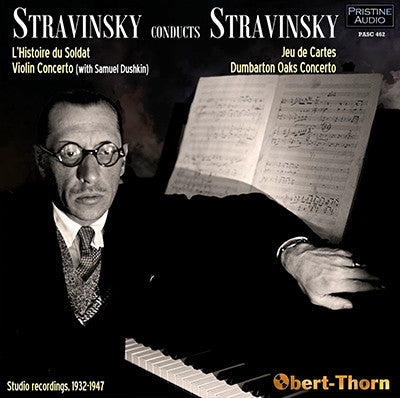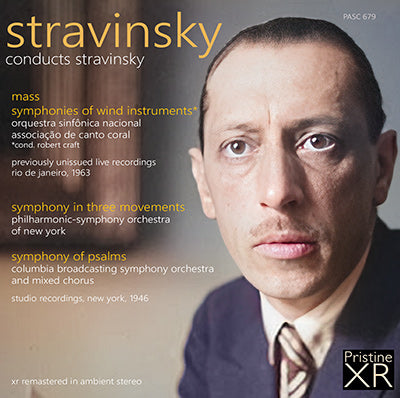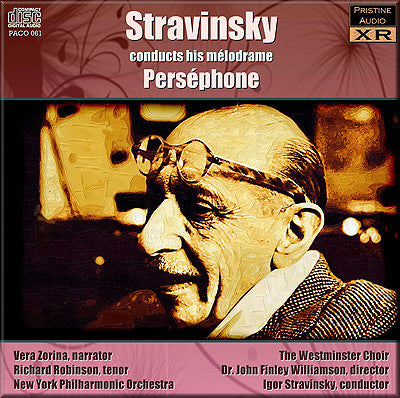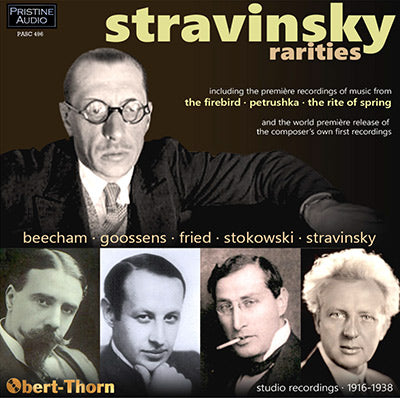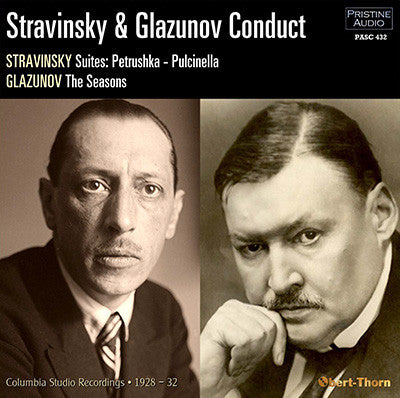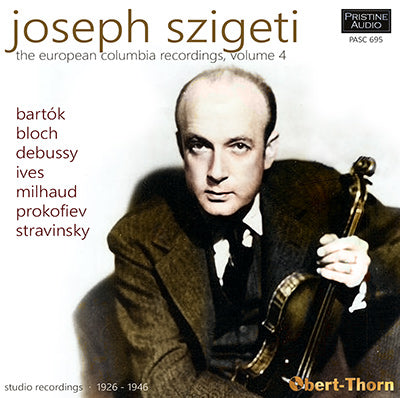Stravinsky
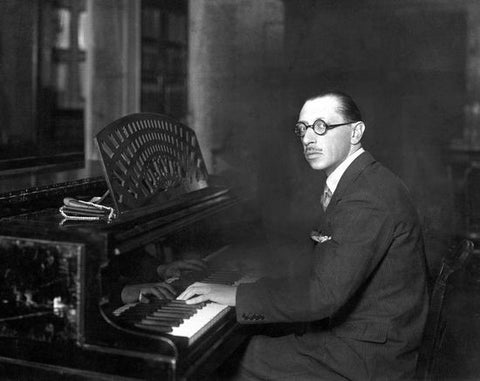
Stravinsky's compositional career was notable for its stylistic diversity. He first achieved international fame with three ballets commissioned by the impresario Serge Diaghilev and first performed in Paris by Diaghilev's Ballets Russes: The Firebird (1910), Petrushka (1911) and the Rite of Spring (1913). The last of these transformed the way in which subsequent composers thought about rhythmic structure and was largely responsible for Stravinsky's enduring reputation as a musical revolutionary who pushed the boundaries of musical design. His "Russian phase" which continued with works such as Renard, the Soldier's Tale and Les Noces, was followed in the 1920s by a period in which he turned to neoclassical music. The works from this period tended to make use of traditional musical forms (concerto grosso, fugue and symphony), drawing on earlier styles, especially from the 18th century. In the 1950s, Stravinsky adopted serial procedures. His compositions of this period shared traits with examples of his earlier output: rhythmic energy, the construction of extended melodic ideas out of a few two- or three-note cells and clarity of form, and of instrumentation.

Stravinsky
Stravinsky's compositional career was notable for its stylistic diversity. He first ach...
STRAVINSKY L'histoire du soldat - Suite
STRAVINSKY Violin Concerto
STRAVINSKY Jeu de cartes
STRAVINSKY Dumbarton Oaks Concerto
Studio recordings, 1932-1947
Total duration: 79:20
Samuel Dushkin violin
Berlin Philharmonic Orchestra
Dumbarton Oaks Festival Orchestra
Lamoureux Orchestra
STRAVINSKY
Mass - previously unissued
Symphonies of Wind Instruments* - previously unissued
Symphony in Three Movements
Symphony of Psalms
Studio & live recordings, 1946 & 1963
Total duration: 74:04
Orquestra Sinfônica Nacional
Associação de Canto Coral
Philharmonic-Symphony Orchestra of New York
Columbia Broadcasting Symphony Orchestra
conducted by Igor Stravinsky
*conducted by Robert Craft
Recorded 14 January 1957 Columbia 30th Street Studios New York City
Total duration: 53:33
Richard Robinson, Tenor
The Westminster Choir
director Dr. John Finley Williamson
New York Philharmonic Orchestra
Conducted by Igor Stravinsky
STRAVINSKY The Firebird
STRAVINSKY Petrushka
STRAVINSKY The Rite of Spring
STRAVINSKY Piano Music
MOZART Fugue in C minor
Studio recordings, 1916-1938
Total duration: 77:57
Beecham Symphony Orchestra ∙ Sir Thomas Beecham
Royal Albert Hall Orchestra ∙ Sir Eugene Goossens
Berlin State Opera Orchestra ∙ Oskar Fried
The Philadelphia Orchestra ∙ Leopold Stokowski
Igor Stravinsky, piano
Soulima Stravinsky, piano
STRAVINSKY Pulcinella Suite
GLAZUNOV The Seasons
Studio recordings, 1928-32
Total duration: 69:16
Alexander Glazunov, conductor
Walther Straram Concert Orchestra
Symphony Orchestra
BACH Violin Sonatas 1 & 2
BACH Concerto for Two Violins
HANDEL Violin Sonata No. 4
TARTINI Violin Sonata in G
TARTINI Violin Concerto in D minor
MOZART Violin Sonata No. 21
MOZART Violin Concerto No. 4
short works by BACH, EXAUDET, TARTINI, VERACINI
BEETHOVEN Violin Concerto
WEBER Violin Sonata No. 3
PAGANINI Caprices
SCHUBERT Rondo
MENDELSSOHN Violin Concerto
BRAHMS Violin Concerto
BRAHMS Violin Sonata No. 3
Music by Berlioz, Hubay, Elgar, Kreisler, Dvořák, Chabrier, Rimsky-Korsakov, Falla
WARLOCK Capriol Suite
PROKOFIEV Violin Concerto
BARTÓK Hungarian Folk Tunes
BARTÓK Romanian Folk Dances
IVES Violin Sonata No. 4
BLOCH Violin Concerto
music by Debussy, Ravel, Milhaud, Lie, Szymanowski, Scriabin, Stravinsky

